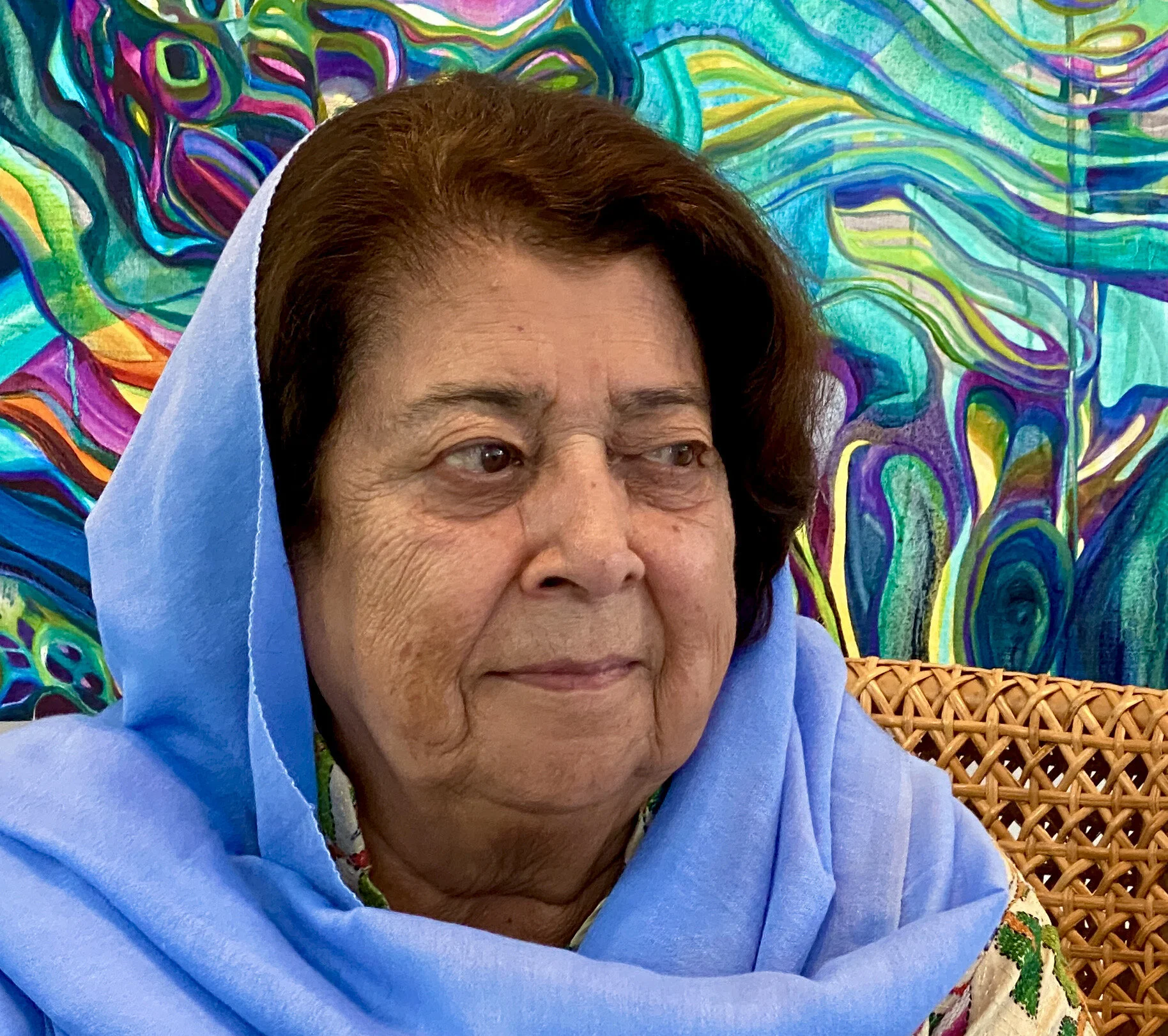KNOW NOW:
Afghanistan’s Girls
Razia Jan’s Race to Educate
This is Razia Jan, Afghanistan’s unofficial envoy for girls’ education.
Diminutive in size, large in presence, Jan assumes female agency in a culture where men have long prevented it. She’s a gutsy woman who skillfully bends the rigidity of the local village elders, an activist who has spawned an entire first generation of educated women in areas just outside Afghanistan’s capital. Celebrated worldwide for offering opportunity to girls in the poor villages of Deh’Subz, her Zabuli Education Center near Kabul turns out high school graduates, certified midwives and newly-equipped teachers who go right to work in the community. Ranging from four-year-olds to those in their early 20s, the student body numbers nearly 800, with 300 more on the Kindergarten waitlist. Interest, guarded at first, has strengthened into a surge, but the country’s volatility assures that Jan’s work is a race against time. Even, perhaps especially, with the Taliban back, she is resolved to meet the demand.
Amid headlines of disasters after the US pullout from Afghanistan, Jan arrived in Washington a few days ago with a singular message: her school will operate as long as it can. Taliban have been there, she says, and they’ve seen it’s a girls school. “Four hundred girls came to school today, and four hundred went home,” she carefully reported, the only inflection in her voice was insistence. Her center had passed another day without disruption or destruction by the Taliban. “The men stand beside us,” Jan says of the husbands, uncles, grandfathers and brothers who live in the students’ villages. Once powerfully objecting to any advancement for girls, these men are now Jan’s strongest supporters. Their families benefit from females who can read and write, who can calculate, who can deliver babies safely. The girls have made gains over the years during the Taliban’s absence -- but those in other schools have suffered retaliatory measures for learning, when men have thrown acid thrown in their faces or lobbed grenades into their classrooms.
Raised in Afghanistan, Jan planned to develop local female wherewithal well before her return to the country post 9/11, after nearly three decades in comfortable Duxbury, Massachusetts where she initially attended university with her then-husband in 1970, and flourished as a single mother and a tailor. She was also the local Rotary Club leader who marshaled 30,000 pairs of shoes for Operation Shoe Fly, started a foundation called Razia’s Ray of Hope to educate Afghan girls, and became a CNN Hero. Once she landed in Kabul after the Taliban left, she quickly grasped the depth of the depravity: marginalized, devalued women and girls who developed a sense of worthlessness. The Taliban tried to normalize the practice of severely restricting the female’s every movement, often selling her for use and abuse. In the years since, Jan built a learning community and spread the value that educating girls matters, working family by family to build trust. What’s emerging today is a battle between two sets of Taliban leaders, the more practical who indicate limited acceptance of women working (in clinics and hospitals treating female patients) and their rigid opposition who want to wipe out any female presence outside the home.
“We are at exactly zero, after 14 years of work in the country,” Jan says, exhaling frustration.
There are plenty of sub-texts. She’s impatient with the barrage of exaggerated commentary and disgusted with fake news -- reality is tough enough. Her Washington visit was filled with briefings and honors, by day, and nonstop calls with Afghanistan, by night. We caught up at the gallery last Saturday on the 20th anniversary of September 11th, a sober time that launched Jan’s work. After an all-nighter on the phone and a day in the searing sun at Arlington National Cemetery paying respects and receiving honors from the Military Women’s Memorial, the 72-year-old grandmother should be wilting. Instead, she wants to talk about the students back home.
At the end, her speech is measured, her eyelids heavy. Still, with every crushing news report about brutality and restrictions in Afghanistan, Jan’s hopefulness is stubborn. "My girls are teaching at my school and other schools in surrounding villages, they are trained midwives and they are taking care of their communities. In the 14 years, we have never had a problem. Men are continuing to stand behind us, and we can't give up."
DO NOW:
If you’re trying to grasp age-old conflicts with brand new context, pick up one of these recommended reads from Indian Express’ short and insightful list. For more on the ground, see this important update on ideological challenges to female engagement. Wonder why Afghan girls spend less than six years in school? Government restrictions against married female students and a severe shortage of teachers (males are not permitted to teach them) and Pakistani Founder Malalal Yousafzai offers ways to help now. UK-based Girls Not Brides gives a well-vetted list of ways to help grassroots campaigns. If you or your family live near one of the many US cities and states where Afghan refugees are resettling, you can help. Lutheran International Relief Services, the highly skilled resettlement NGO, will guide you. Click here to learn more.
Amy Kaslow
Senior Researcher and Assistant Editor: Jordan Lee


